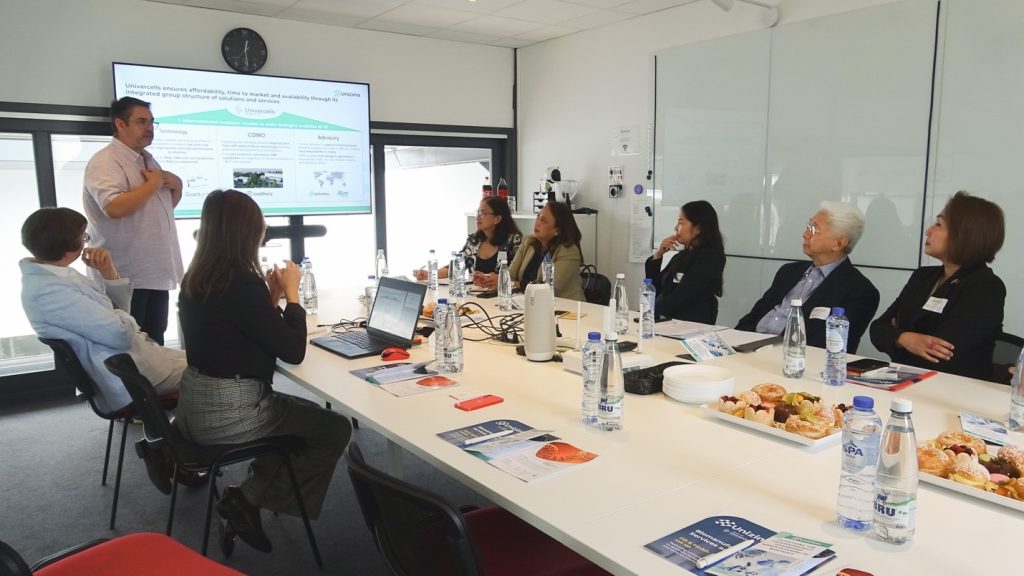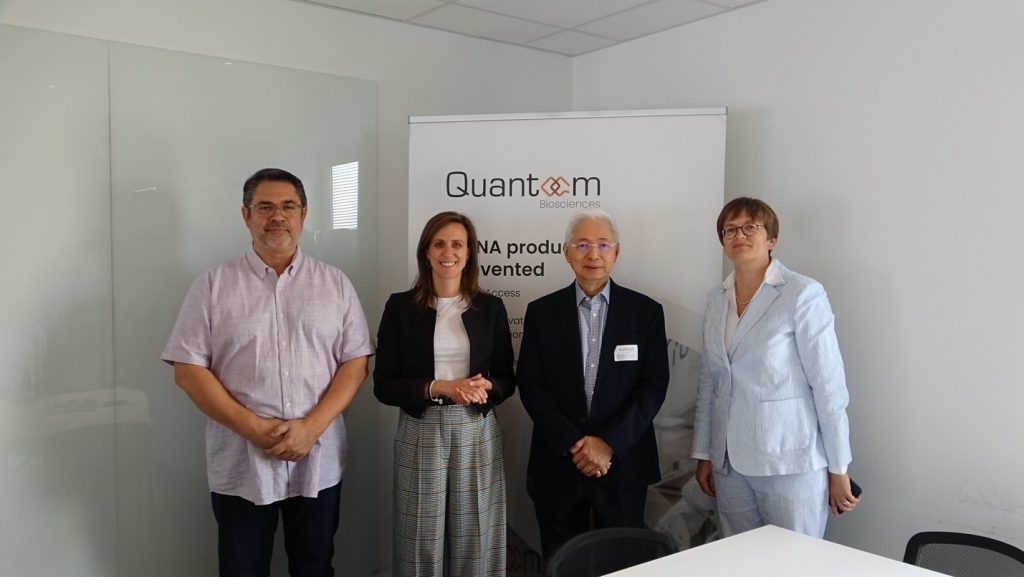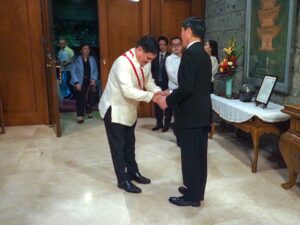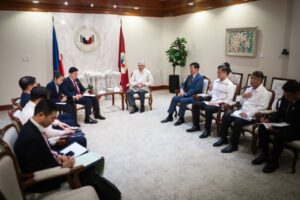
[In photo: (from left side, front to back), Miriam Rusconi of Unizima, Virginie De Coster of Unizima, Quantoom CEO Jose Castillo; (from right side, front to back) DTI Undersecretary for Communications Kim B. Lokin, DTI Secretary Alfredo Pascual, PTIC-Brussels Commercial Counsellor Magnolia Ash]
Univercells is keen on partnering with the Philippines for its Vaccine Self Reliance Program (VSRP) and the development of the Virology Institute of the Philippines (VIP).
This was disclosed by Department of Trade and Industry Secretary Alfredo Pascual after his meeting with Quantoom Biosciences CEO Jose Castillo on June 28, 2023 in Brussels, Belgium.
Quantoom Biosciences is a subsidiary of Univercells, a global life sciences company with the mission of making biologics accessible to all. Univercells currently does not have any existing operations in Asia or the Philippines
Headquartered in Jumet, Belgium, Univercells is supported by regional, national and international investors active in vaccines and healthcare, such as the Bill and Melinda Gates Foundation, the European Investment Bank, and the Global Health Investment Fund, among others.
The company operates through specialized subsidiaries such as Exothera, which manufactures vaccines; Univercells Technologies; and Unizima, a biomanufacturing services and technology provider enabling sustainable production of biologics.
Through combined expertise in scaling, production, and bioprocessing, Univercells’ revolutionary approach through Quantoom involves the development of compact, modular, and cost-effective manufacturing platforms that enable efficient production of vaccines at a smaller scale.
By downsizing traditional manufacturing processes, Univercells democratizes vaccine production by equipping developing countries with the tools to establish local vaccine production facilities tailored to their specific needs.
During the meeting, Secretary Pascual noted, “One of the top priorities of the Philippines in terms of gathering investments is the manufacturing of vaccines and biologics, which is part of our health and life sciences priority cluster. With this, we aim to establish security in addressing current and future health emergences and pandemics. And this can be done if the country will be able to position itself as a manufacturing hub for vaccines.”
Through Univercells’ approach, the Philippines can enhance its self-reliance in immunization efforts, bolster public health outcomes, and mitigate the risks associated with vaccine supply chain disruptions.
“The establishment of the VSRP and the Virology Institute of the Philippines (VIP) are top priorities of the Marcos Jr. administration. The capability to manufacture vaccines is of utmost importance as vaccines play a crucial role in preventing the spread of infectious diseases such as the COVID-19 and strengthening the country’s pharmaceutical industry. By manufacturing it domestically, we can ensure a steady supply of vaccines to protect our population as well as improve our technological capabilities in the sector,” Secretary Pascual added.
Further, he highlighted the advantages of domestic vaccine manufacturing, including increased affordability and accessibility compared to imported vaccines. He acknowledged that locally produced vaccines contribute to economic growth by creating employment opportunities and facilitating transfer of advanced technology in the health and life sciences sector.
The Philippines’ pharmaceutical market estimate is currently at USD 4.5 billion, about 70 percent of which is for prescription medicines while the rest are over the counter medicines. The market is supplied by just about 46 manufacturers, with about 46 percent of sales accounted for by Filipino companies such as Unilab, Cathay Drug, Lloyd Laboratories, Pascual Laboratories, and Hizon Laboratories among others. Meanwhile, big global brands present in the Philippines are Boehringer Ingelheim, Pfizer, Novartis, Roche, Astra Zeneca, GSK, and Sanofi.



